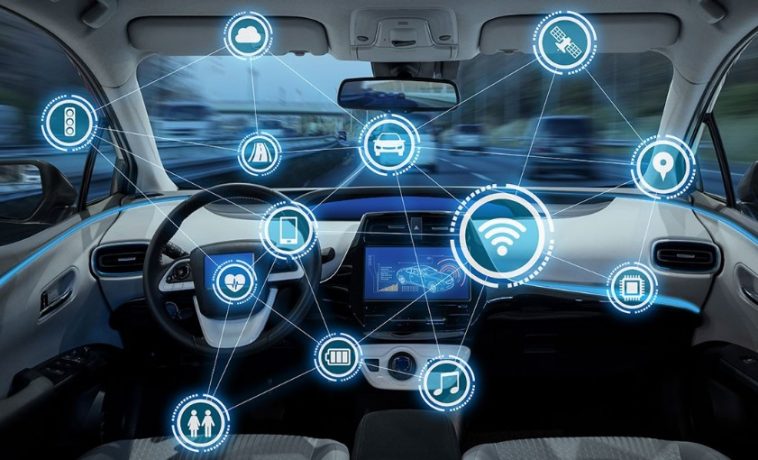This article will explain How Will Technology Change Future Cars? The automotive industry is experiencing a significant transformation as technology continues to advance at a rapid pace. From electric vehicles to autonomous driving capabilities, innovative technologies are revolutionizing the way we perceive and interact with cars.
This article explores the various ways in which technology is set to change future cars, while addressing important questions related to these advancements.
How Will Technology Change Future Cars?
Technology is poised to bring significant changes to future cars, revolutionizing various aspects of the automotive industry. Here are some ways in which technology will transform future cars:
Electric Propulsion
Advancements in battery technology will lead to increased range, faster charging times, and improved energy efficiency for electric vehicles (EVs). As infrastructure expands, EVs will become more practical and accessible, reducing dependence on fossil fuels and decreasing carbon emissions.
Autonomous Driving
Autonomous driving technologies will enable vehicles to operate without human intervention. Through a combination of sensors, cameras, and advanced algorithms, self-driving cars will enhance safety, reduce accidents caused by human error, and optimize traffic flow. This technology has the potential to reshape transportation systems and enable new mobility services.
Connectivity
Connected car technology will transform vehicles into connected devices. Cars will have internet connectivity, allowing for real-time data exchange and access to various services.
This includes navigation assistance, over-the-air software updates, vehicle diagnostics, and personalized infotainment. Connectivity will also facilitate vehicle-to-vehicle (V2V) and vehicle-to-infrastructure (V2I) communication for safer and more efficient transportation.
Advanced Safety Features
Technological advancements will introduce sophisticated safety features. These include adaptive cruise control, automatic emergency braking, lane-keeping assist, blind-spot detection, and pedestrian detection systems. Artificial intelligence and machine learning algorithms will enhance these features, improving hazard detection and collision avoidance.
Augmented Reality (AR)
Augmented reality will enhance the driving experience by overlaying digital information onto the real-world environment. Head-up displays (HUDs) will project critical information such as navigation, speed limits, and traffic conditions onto the windshield, reducing driver distraction and increasing situational awareness.
Vehicle-To-Everything (V2X) Communication
V2X communication will enable cars to communicate with other vehicles, pedestrians, and infrastructure. This technology will enhance safety by providing real-time warnings about potential hazards, traffic conditions, and road construction. It will also enable more efficient traffic management and pave the way for advanced autonomous driving capabilities.
Sustainable Manufacturing
Technological advancements will promote sustainable manufacturing processes in the automotive industry. This includes the use of lightweight materials like carbon fiber, advanced recycling techniques, and the integration of renewable energy sources in manufacturing facilities. Sustainable practices will reduce the environmental impact of car production and enhance overall sustainability.
Mobility-as-a-Service (MaaS)
Advances in technology will fuel the growth of Mobility-as-a-Service, where users access transportation solutions on-demand rather than owning individual vehicles. Ride-sharing, car-sharing, and subscription-based services will become more prevalent, promoting efficient resource utilization and reducing the number of vehicles on the road.
Technology will bring transformative changes to future cars, ranging from electric propulsion and autonomous driving to connectivity and advanced safety features. These advancements will enhance sustainability, safety, convenience, and overall driving experience, paving the way for a new era of transportation.
How Will Advancements In Battery Technology Impact The Range And Charging Capabilities Of Electric Vehicles?
Advancements in battery technology, such as improved energy density and faster charging capabilities, will increase the range of electric vehicles. Higher energy density allows for more energy storage within the same physical size, enabling longer driving distances. Additionally, faster charging capabilities will reduce the time required to recharge electric vehicles, making them more convenient and practical for everyday use.
What Are The Potential Challenges And Benefits Of Transitioning From Traditional Internal Combustion Engines To Electric Propulsion?
The transition from traditional internal combustion engines to electric propulsion faces challenges such as building charging infrastructure, managing battery production and recycling, and addressing range anxiety.
However, the benefits are numerous. Electric propulsion eliminates tailpipe emissions, reduces dependence on fossil fuels, and lowers operating costs due to the higher energy efficiency of electric motors. It also provides quieter and smoother driving experiences.
Conclusion
The future of cars is being shaped by an array of groundbreaking technologies. Electric propulsion, autonomous driving, connectivity, advanced safety features, augmented reality, and sustainable manufacturing are just a few areas where technology is transforming the automotive industry.
As these advancements continue to evolve, cars of the future will be safer, more efficient, and offer enhanced driving experiences, ultimately revolutionizing the way we perceive and interact with vehicles.




